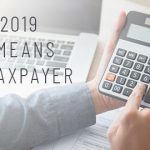Common Terms Used in Tax Information – Explained
We’ve all been there. You’re about to complete a HMRC document, get on a roll and then half way through they use a complicated word which is either ambiguous or just has absolutely no meanting to you whatsoever! So usually the google search engine comes out and you spend a few minutes searching for the word trying to find out what it means.
Well today ladies and gents I just wanted to give you a list of the most commonly used terms in the tax world and explain what each phrase means so you can forevermore know what to expect when completing any tax/accounting documents. So here we go:
Benefits in Kind (Previously known as ‘Fringe Benefits’)
These are basically any form of benefit which your employer gives you for free as an employee. This includes assets such as a business car or accommodation.
Capital Gains Tax
So firstly, ‘Capital Gains’ is the profit of any an asset which has increased in value since you purchased it. For example if you bought property for £100,000 and then sold it a few years later at £200,000 then you have capital gains of £100,000. Capital Gains Tax is then applied to the profit if you were to ever sell that asset – so if you sold this property at £200,000 then you would have to pay capital gains tax on the £100,000 profit.
Gift Aid
This is a donation scheme set up by the government to enable charities to claim more money for every donation. If you opt-in for the scheme when donating any money, it simply means that the charity can claim an additional 25p per £1 donated to them and it doesn’t cost the donator any extra – so ALWAYS opt in for this scheme where available to help out your charity more!
Independent Taxation
Prior to 1990, married couples used to be taxed as one entity – however independent taxation now means each partner is taxed individually with their own personal allowances etc. So in simple it just means you’re being taxed individually when married and not as a couple.
Remittance
This word confuses many people since it sounds bad…but remittance is good! It just is a fancy way of saying something has been paid – you’ll likely see this from your customers if they ever send you a ‘remittence advice’ letter, and on first viewing it looks like a bad thing but it just means they have paid your invoice – like a receipt.
VAT (Value Added Tax)
This is tax added to products and services that you sell. However it only applies to individuals and businesses who earn over the ‘VAT Threshold‘ – so unless you’re earning above this you don’t need to worry about this tax or adding it to your products or services.














Share On